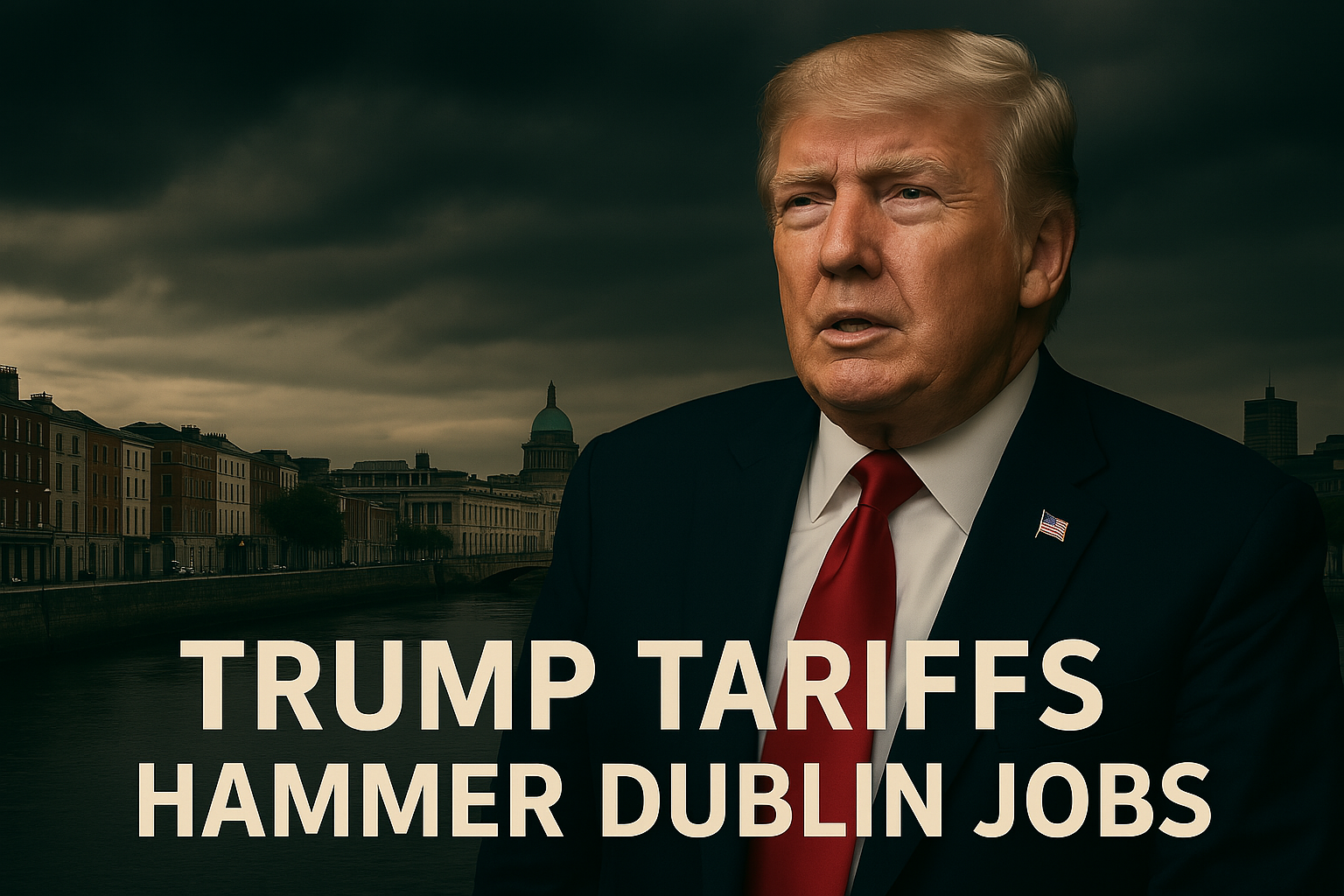Trump's Tariffs Hammer Dublin: Is Your Job collateral damage in the New Trade War?
The 20% US tariff on EU goods isn't just news, it's hitting Dublin jobs NOW. We dive deep into the immediate impact, the 'short-time work' reality, and the wider economic fallout for Ireland.
Posted by
 EasyOffer Team
EasyOffer TeamRelated reading
Government Misses 2024 Social Housing Targets
Analysis of Ireland's missed social housing targets for 2024 and its implications for the property market, including detailed insights into government responses and market effects.
From D2 to A2: A Complete Guide to Home Renovation Costs in Ireland 2025
Detailed breakdown of costs and timelines for upgrading your Irish home's BER rating, including insulation, solar panels, and windows based on real 2025 data.
Irish Property Market 2025: Impact of Multinational Investment
Analyze how multinational investment is shaping Ireland's property market in 2025, with insights on growth trends and market dynamics amidst new economic pressures.

The Trade War Isn't Coming. It's HERE. What Now, Dublin?
Let's be blunt: the theoretical trade war just became brutally real for Dublin. The baseline 10% US tariff hit April 5th, but the real gut punch – the punitive 20% tariff specifically targeting EU nations, including Ireland – lands on April 9th. President Trump invoked the International Emergency Economic Powers Act (IEEPA), citing trade deficits and 'unfair' practices like VAT. While the political justifications fly, the immediate question for Dubliners is stark: Is my job safe, or am I just collateral damage?
Hot Take: Calling this about 'reciprocity' is political spin. It feels more like economic warfare where established supply chains and thousands of Irish jobs are caught in the crossfire.
Red Alert: Sectors Taking Immediate Hits
Forget 'potential impact'. Industry bodies like Ibec are confirming the pain is immediate, felt right now, this weekend. Orders are being cancelled, demand is plummeting. The front-line casualties include:
- Irish Drinks Sector: Whiskey, craft beers, spirits – major exporters facing a sudden 20% price disadvantage in their crucial US market. Demand is evaporating overnight.
- Fast-Moving Consumer Goods (FMCG): Think packaged foods, certain toiletries – anything relying on rapid US sales cycles is instantly vulnerable. Inventory backlogs loom.
- Agri-Food Exports: Quality Irish food products now face a steep tariff barrier, threatening farmer incomes and processing jobs.
The immediate consequence? Employers in these sectors are already discussing slashing hours and activating short-time work schemes. This isn't speculation; it's the emergency brake being pulled to avoid immediate layoffs, mirroring the drastic measures needed during the pandemic.
The Ripple Effect: No Sector is an Island
Think you're safe because you don't work in exports? Think again. Tariffs poison the well for the entire economy:
- Supply Chain Chaos: Companies importing US components or exporting finished goods face major disruption. This hits logistics, warehousing, transport, and anyone supplying parts or services to exporters.
- Investment Deep Freeze: Why invest or expand in Ireland if your main market (US) is suddenly hostile, or if EU retaliation creates further chaos? This chills the construction sector, professional services, and general employment outlook Dublin.
- Multinational Shivers: Big Tech & Pharma (MNEs) might not be directly tariffed *yet*, but their global strategies are interconnected. A hit to goods exports can impact overall profitability, potentially leading to hiring freezes, delayed projects, or even reassessment of Ireland as a stable base.
Is your property value at risk from the tariff fallout?
Economic uncertainty can impact property markets. Get an instant valuation of your home to understand where you stand in today's changing landscape.
Get Your Free Property valuation →Your Survival Strategy: Awareness & Agility
In this volatile climate, burying your head in the sand is not an option. You need to be informed and ready to adapt:
- Track Your Sector: Follow reliable news sources (not just headlines) about how your specific industry is coping. What are the main employers saying?
- Know Your Rights & Supports: Understand potential government interventions like the Short-Time Work Support scheme. Be aware of your employment rights.
- Skill Up & Diversify: What skills do you have that are transferable? Can you upskill in areas less vulnerable to trade wars (e.g., domestic services, green economy)?
The full scale of the damage from these tariffs remains uncertain, dependent on duration and retaliation. But the initial shock is severe. Dublin's workers face a period demanding vigilance, adaptability, and perhaps some tough choices.
